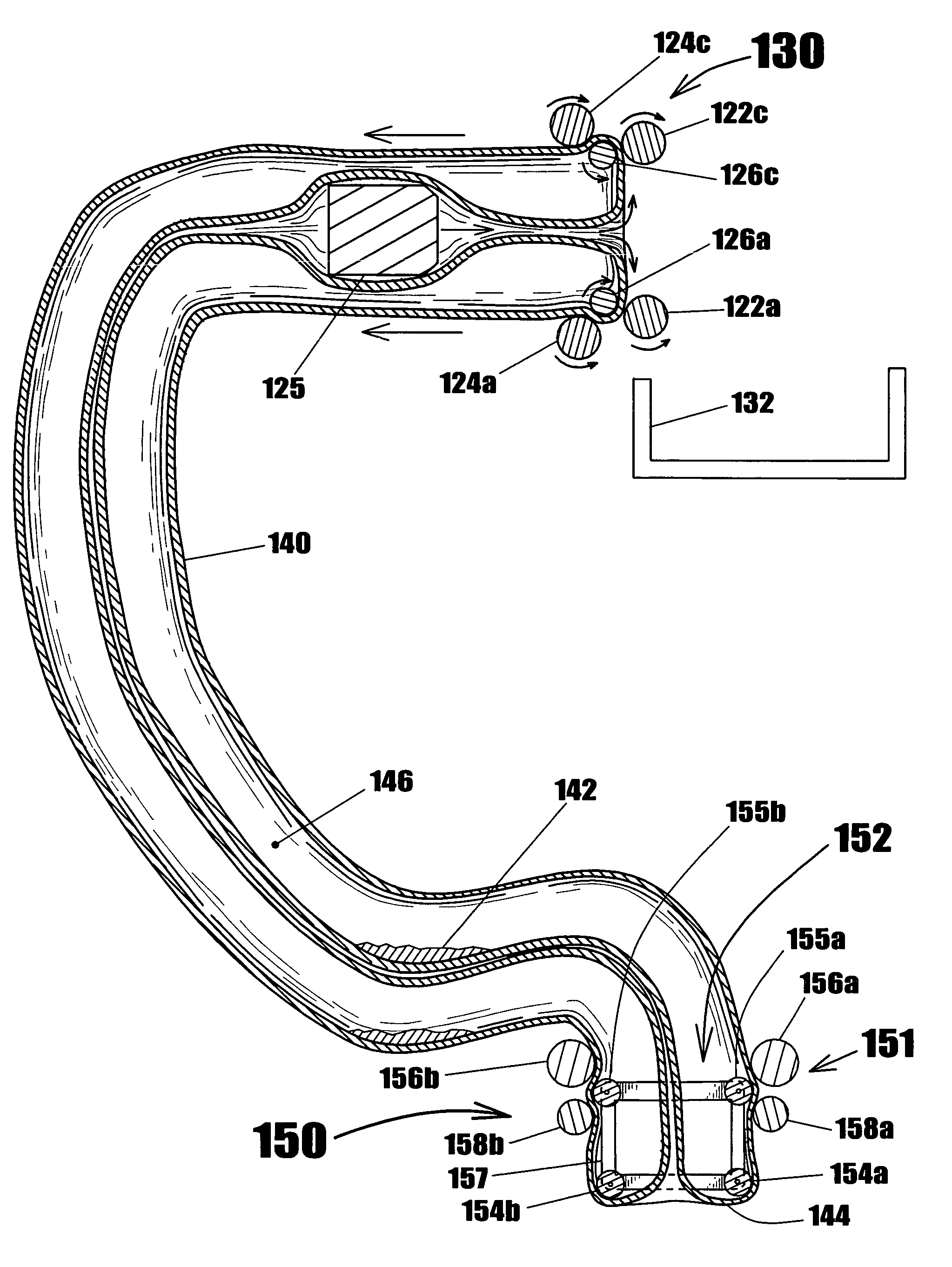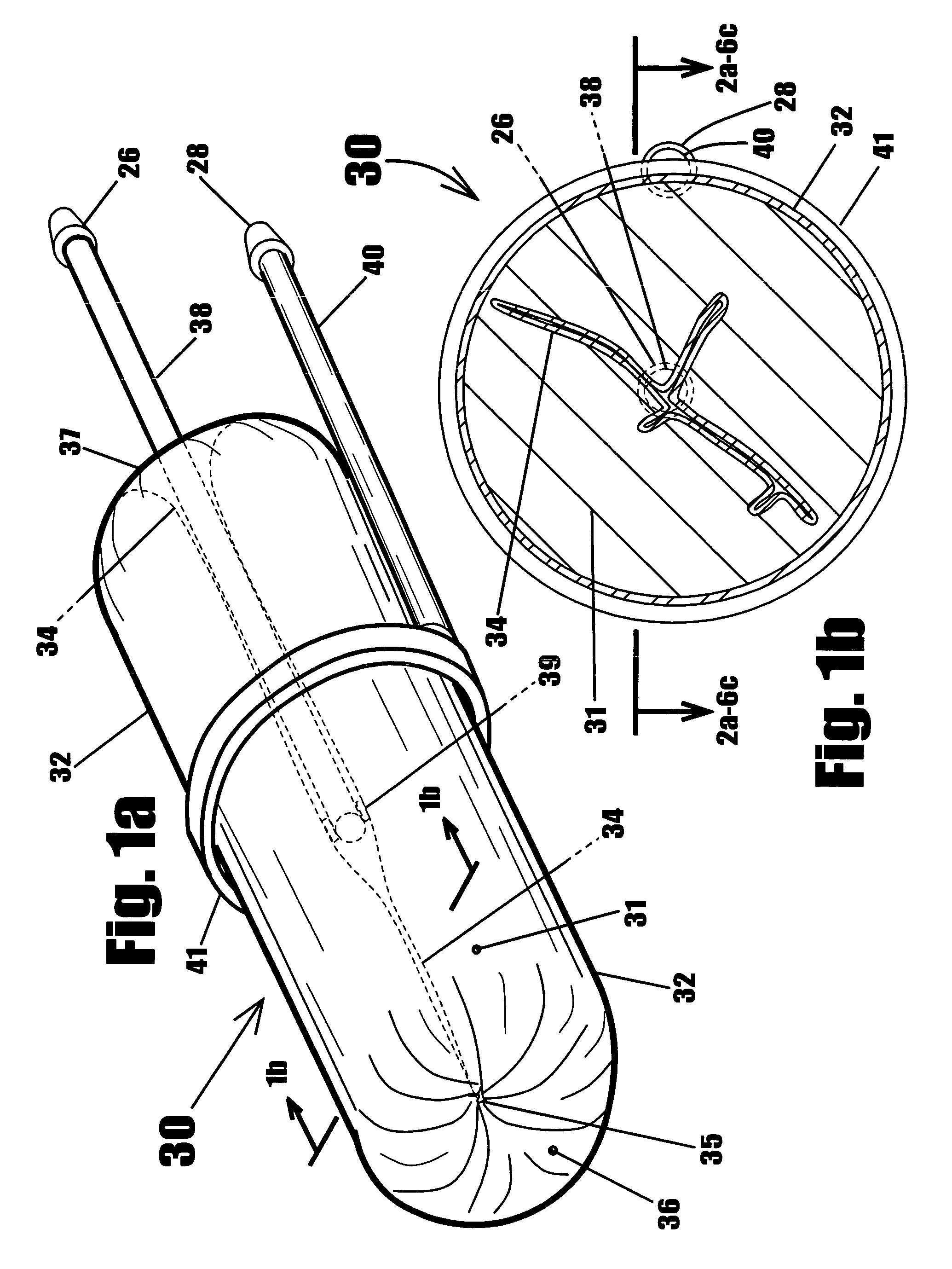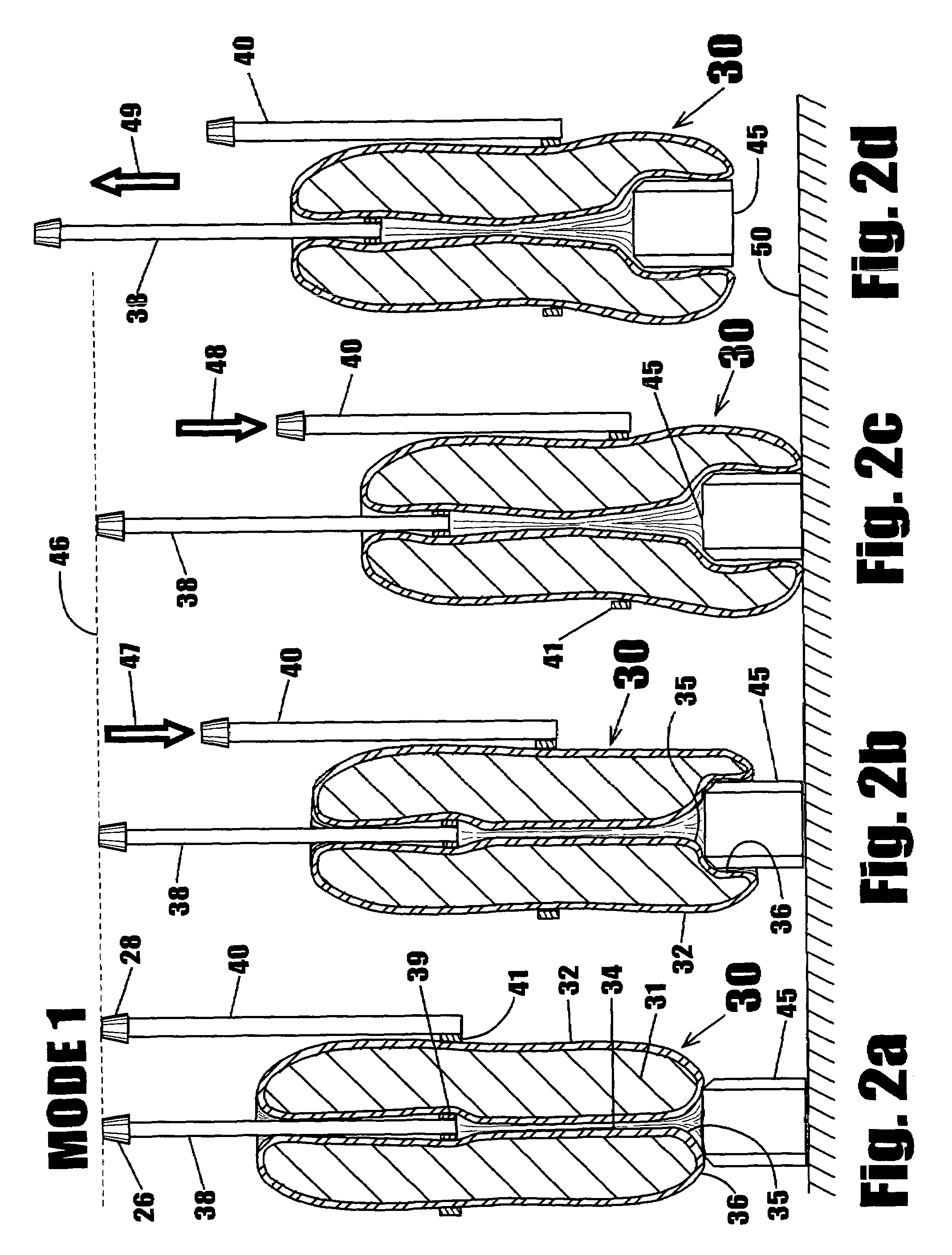Torus-shaped conveyer and gripper
a conveyer and torus technology, applied in the direction of gripping heads, load-engaging elements, thin material handling, etc., can solve the problems of no torus shaped membrane being used as a conveying mechanism, and no torus elongated being used as a conveyer
- Summary
- Abstract
- Description
- Claims
- Application Information
AI Technical Summary
Problems solved by technology
Method used
Image
Examples
Embodiment Construction
[0044]In FIG. 1a we see a simple robotic gripper comprising of an elongated torus 30, and a pair of control rods 38 and 40. Torus 30 is made of a stretchable membrane material such as rubber, latex, or other stretchable material which allows the membrane to be rotate around its interior volume. Torus shaped membrane 30 is made sufficiently flexible to allow collapsed channel portion 34 of the torus to be rotation to the expanded exterior surface 32 of the torus. Torus 30 has a high coefficient of friction to help it grip objects, and comprises an exterior section 32, a collapsed interior portion 34, and end transition portions 36 and 37. Torus 30 can be manufactured in a number of way, including: 1) blow molding—where rubberized plastic is expanded in a torus shaped mold, 2) spin molding—where liquid polymer is put in a torus shaped mold and rotated to coat all the surfaces of the mold, 3) single weld—using a single tube of stretchable material and threading one end through the tube...
PUM
 Login to View More
Login to View More Abstract
Description
Claims
Application Information
 Login to View More
Login to View More - R&D
- Intellectual Property
- Life Sciences
- Materials
- Tech Scout
- Unparalleled Data Quality
- Higher Quality Content
- 60% Fewer Hallucinations
Browse by: Latest US Patents, China's latest patents, Technical Efficacy Thesaurus, Application Domain, Technology Topic, Popular Technical Reports.
© 2025 PatSnap. All rights reserved.Legal|Privacy policy|Modern Slavery Act Transparency Statement|Sitemap|About US| Contact US: help@patsnap.com



